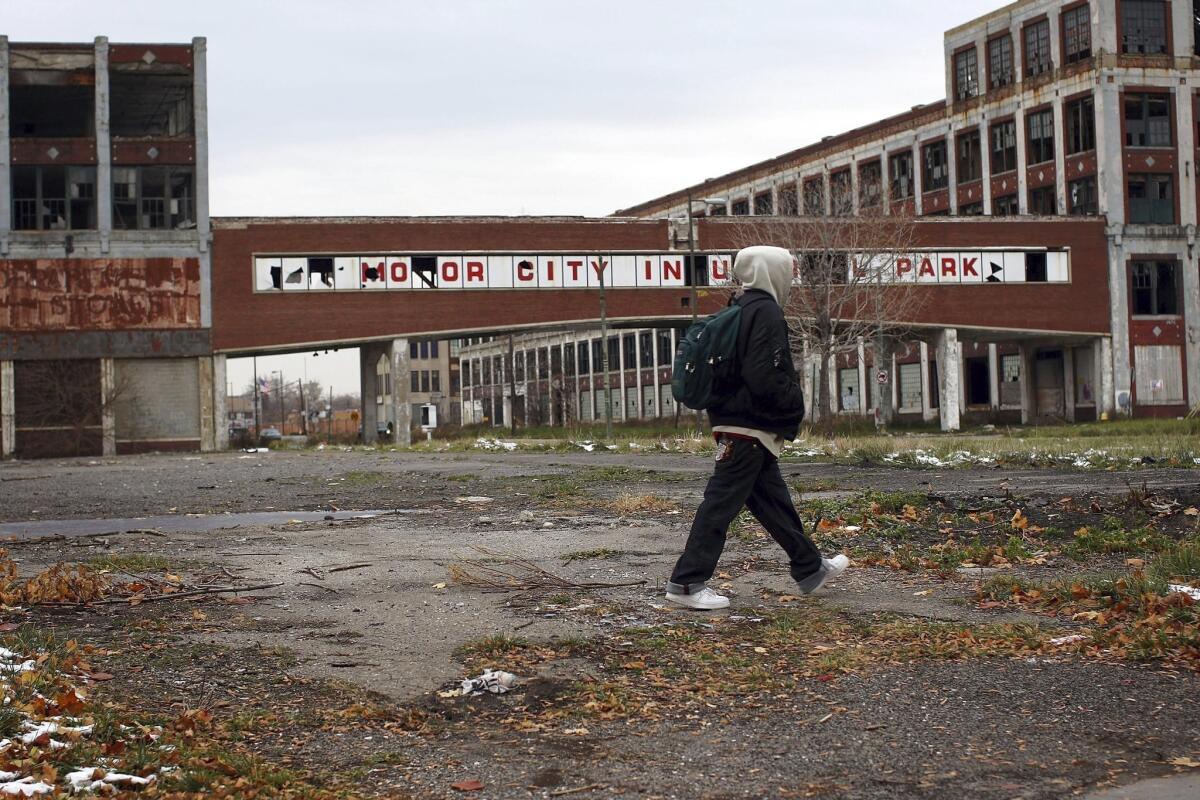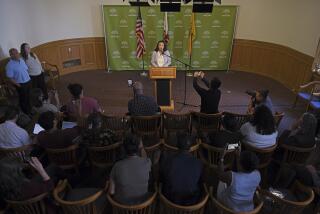Detroit: What a city owes its residents

Though it is the biggest city in U.S. history to file for bankruptcy, Detroit is only one of 26 urban municipalities that have gone into bankruptcy or state receivership for fiscal insolvency since 2008. Detroit should draw attention and debate to a challenging issue underlying all these public insolvencies: What level of public services will we protect and guarantee for U.S. cities?
The Bankruptcy Court will have to face that question. It will have to determine whether Detroit can cut into current services any more than it already has. Unless the state or federal government steps in with funds for operating costs, the bankruptcy will function as a zero-sum game, with residents fighting creditors for a share of city revenue. Creditors have contracts to monetize what they are seeking, but how should the court determine the public spending that residents need today and tomorrow?
Politicians and judges who manage local fiscal crises speak of maintaining basic services and ensuring residents’ minimal health and safety, but these concepts are short on specifics. While our laws provide an entitlement to a public education, and we have long struggled to interpret what constitutes a legally adequate education, there is little to nothing that would tell us what other services the local public sector must provide.
As a matter of law, there is no such thing as a crime rate that is too high or an ambulance response time that is too long. Should there be?
For now, it is left to politics and moral judgment to determine whether it is acceptable that less than 1 in 3 streetlights are operational in Detroit or that the city has 80,000 abandoned and blighted structures that it cannot afford to demolish. In Detroit, as in many other struggling cities, dramatic police layoffs mean that the average wait time after a 911 call for a police officer is 58 minutes, and a resident can rarely summon an officer at all if the reported crime is not in progress and violent.
As for other public functions that a high-poverty city (especially one with severe winters) might hope to have — such as reliable bus service, playground equipment, indoor basketball courts, after-school programs, active libraries and community centers for the elderly — these services are decades into deep cuts and widespread closures. Indeed, having curtailed everything beyond emergency services, it would be tempting to refer to a government like Detroit’s as a night-watchman state — the libertarian ideal of a government focused only on public safety.
That is, we’d be tempted to use such a term for Detroit, and cities like it, were it not such a cruel irony: Detroit had more than 15,200 violent crimes and 500 acts of arson in 2012. The night watchmen are understaffed and underpaid. According to a 2012 study by economists Aaron Chalfin and Justin McCrary, public spending in Detroit on each police officer (including all wages, benefits and retirement costs) is less than two-thirds what it is just 45 miles away in the prosperous university town of Ann Arbor.
As a political and moral matter, as much as a legal one, Detroit represents an opportunity to take a stand for urban habitability. What belongs on our list of minimum standards for a city? Detroit invites us to have a public conversation about what services and public spaces we expect from city governments for human dignity and for humans to flourish. We have a chance to say that no one should have to wait hopelessly for an ambulance, that a violent crime in a neighborhood every few hours is intolerable.
Paying for such commitments should not just be the burden of creditors. Many of the city’s creditors are rank-and-file public employees and retirees who have counted on a public pension and are not eligible for Social Security. Detroit’s bankruptcy plan could send them into poverty in their old age.
Basic services and safety in our cities are the responsibility of states, the federal government, the private sector and voters. It is all of them — all of us — who have a role to play in the stabilization that Detroit is seeking through bankruptcy. All of us have a responsibility to help them give basic health and safety real meaning, and to make this bankruptcy a safety net, not a punishment.
Michelle Wilde Anderson is an assistant professor of law at UC Berkeley School of Law.
More to Read
A cure for the common opinion
Get thought-provoking perspectives with our weekly newsletter.
You may occasionally receive promotional content from the Los Angeles Times.










